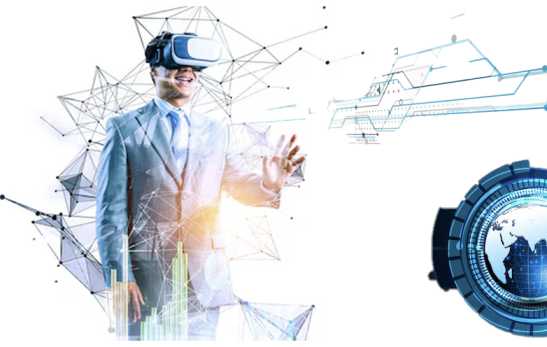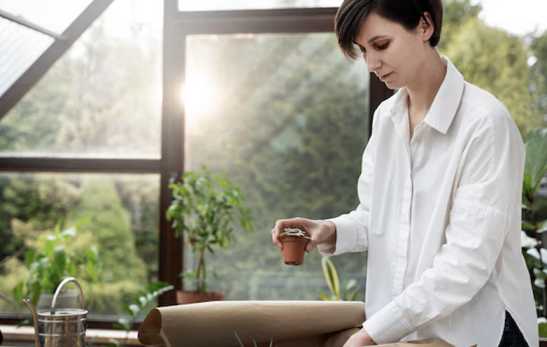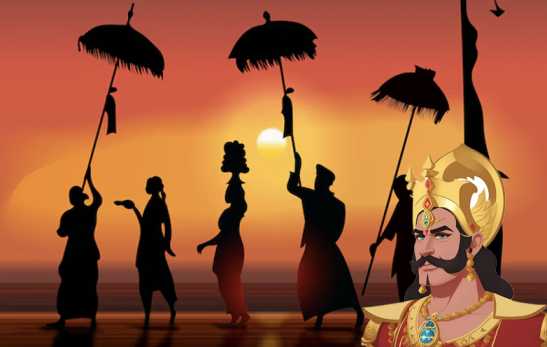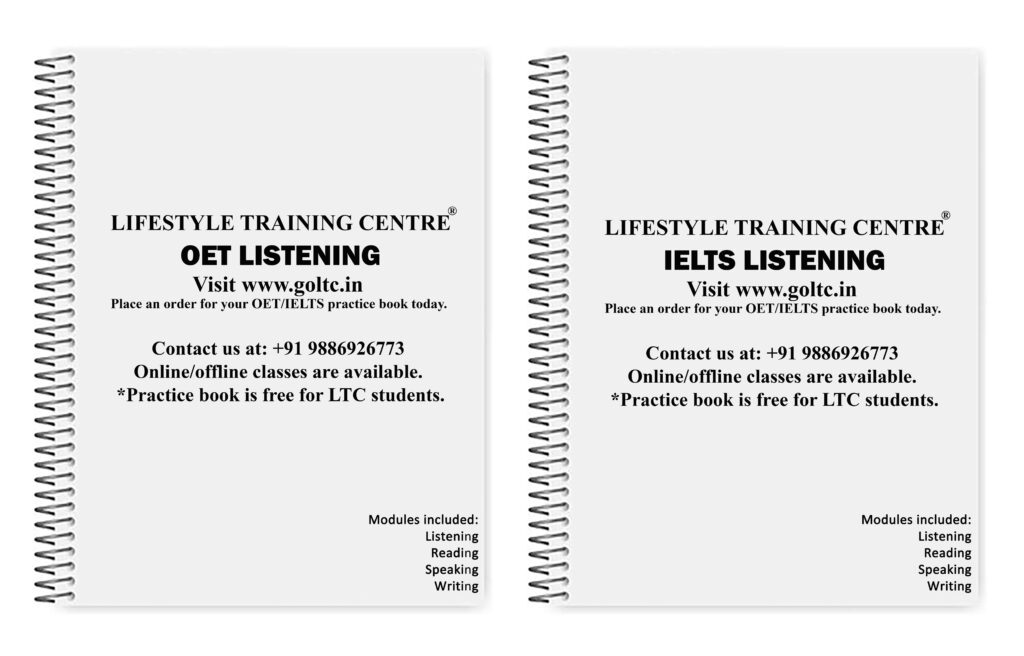1. Do you work or are you a student?
I’m currently a full-time student pursuing my undergraduate degree in Computer Science at a prestigious university. I’m in my final year and actively preparing for my future career in technology.
2. Is that a popular subject in your country? What are the most popular subjects in your country? Why did you choose that university?
Computer Science is undeniably a sought-after field in my country due to the booming tech industry. Alongside this, subjects like Business Administration, Engineering, and Medicine also enjoy immense popularity. I chose my university because of its stellar reputation, particularly in Computer Science. It boasts world-class faculty, access to state-of-the-art facilities, and a curriculum that emphasises practical learning, which aligns perfectly with my long-term goals.
3. What are your favourite courses or subjects at university?
My favourite subjects include Artificial Intelligence (AI) and Database Management Systems. I find these fields particularly captivating because they explore the cutting-edge of modern technology and offer a sneak peek into the future of computing. The problem-solving nature of these courses challenges me intellectually and keeps me highly motivated.
4. How do you manage your time between studying and other activities?
I rely on effective time management strategies to juggle my studies and extracurricular activities. By maintaining a well-structured schedule, I allocate dedicated time for lectures, assignments, and social engagements. I make it a point to prioritise my tasks, eliminate distractions, and set achievable goals, ensuring that I stay on top of my commitments.
5. Do you think having a part-time job while studying is a good idea? Why or why not?
Yes, I believe working part-time during studies can be a stepping stone to real-world experience. It not only fosters financial independence but also hones skills such as time management, collaboration, and accountability. However, it’s crucial to strike a balance to prevent work from interfering with academic performance.
6. What are your future career plans after completing your studies?
After graduating, I plan to delve into the field of Artificial Intelligence (AI) and Machine Learning (ML). My dream is to contribute to creating intelligent systems that solve complex challenges and transform everyday life. To achieve this, I aim to pursue a master’s degree and gain hands-on experience in the tech industry.
7. Are there any specific challenges you face as a student in your field of study?
Certainly, studying Computer Science comes with its fair share of hurdles. One major challenge is keeping pace with the lightning-fast advancements in technology. Mastering new programming languages and frameworks can be demanding. Additionally, tackling time-intensive projects and meeting strict deadlines requires immense dedication and a keen eye for detail.
8. What advice would you give to someone considering a career in your field?
For anyone aspiring to enter the field of Computer Science, I’d strongly recommend building a solid foundation in programming and cultivating a curiosity for innovation. Participating in coding bootcamps, networking with industry professionals, and creating personal projects can provide a competitive edge. Remember, in this field, the ability to adapt to change is just as vital as technical expertise.
9. How important is practical experience in your field?
Practical experience is absolutely indispensable in Computer Science. While theoretical knowledge forms the foundation, real-world applications offer an opportunity to bridge the gap between learning and doing. Internships, coding competitions, and collaborative projects allow students to test their skills, gain valuable insights, and develop a hands-on understanding of industry practices.
10. Do you think technology has changed the way students learn today?
Absolutely! Technology has revolutionised education by making resources more accessible and interactive. Online courses, virtual labs, and collaborative tools have transformed the learning experience, enabling students to learn at their own pace. However, the flip side is that it can sometimes lead to over-reliance on digital tools, reducing opportunities for critical thinking and face-to-face collaboration.
List of vocabulary used (task 1):
- Full-time student – A student enrolled in a complete academic course load.
- Prestigious university – A highly respected or esteemed educational institution.
- Sought-after field – A profession or area of study that is in high demand.
- Booming tech industry – A rapidly growing technology sector.
- Stellar reputation – An excellent and highly respected standing.
- State-of-the-art facilities – The most modern and advanced infrastructure or equipment.
- Cutting-edge – Extremely modern and advanced; innovative.
- Sneak peek – A quick or early look at something new.
- Effective time management – The ability to plan and organise tasks efficiently.
- Prioritise tasks – To arrange activities in order of importance.
- Stepping stone – An action or event that helps someone progress towards a goal.
- Financial independence – The ability to support oneself financially without external aid.
- Accountability – Taking responsibility for one’s actions or duties.
- Artificial Intelligence (AI) – Technology that enables machines to mimic human intelligence.
- Machine Learning (ML) – A subset of AI focused on teaching computers to learn from data.
- Lightning-fast advancements – Rapid and significant technological progress.
- Time-intensive – Tasks or activities that require a significant amount of time.
- Immense dedication – A great amount of commitment and hard work.
- Solid foundation – A strong base or starting point for knowledge or skills.
- Competitive edge – An advantage that makes someone more successful than others.
- Indispensable – Absolutely necessary or essential.
- Bridge the gap – To connect two different aspects, such as theory and practice.
- Over-reliance – Excessive dependence on something.
- Theoretical knowledge – Knowledge based on concepts and principles rather than practical experience.
- Real-world applications – Practical uses of concepts in everyday or professional life.
Idioms and Meanings
- Strike a balance – To achieve a state where different elements are in harmony.
- Fair share of hurdles – A reasonable amount of difficulties or challenges.
- Hands-on understanding – Practical experience or knowledge gained through doing.
- Flip side – The opposite or less favourable aspect of something.
- Lightning-fast advancements – Rapid progress, especially in technology.
- Stepping stone – An opportunity or stage that helps you move forward in life.
- Test their skills – To put one’s abilities to the test or evaluate them in practice.
Phrases and Meanings
- World-class faculty – Professors or teachers who are internationally recognised for their expertise.
- Long-term goals – Objectives or ambitions set for the distant future.
- Time management strategies – Methods or techniques to use time efficiently.
- Cultivate curiosity – To nurture or develop an interest in learning.
- Bridge the gap – To connect or bring together two different things.
- Real-world experience – Practical knowledge gained through actual work or activities.
- Sought-after field – A profession or area of study that many people are interested in pursuing.
- Networking with professionals – Building relationships with experienced people in an industry.
- Cutting-edge technology – The most advanced and innovative technological developments.
- Over-reliance on digital tools – Excessive dependence on electronic or technological resources.
TASK 2:
1. Topic: A Piece of Art
– Question 1: Describe a piece of art that left an impression on you.
– You should say:
– What is the artwork, and who is the artist?
– Where did you see it, and when?
– What emotions or thoughts did it evoke?
– How has it influenced your appreciation for art?
Task 3 – follow up questions:
1. Why do you think people create art?
People create art as a way to express themselves, share ideas, and connect with others. It’s a universal language that transcends cultural and linguistic barriers. For many, art provides an emotional outlet, helping them process feelings that might otherwise be hard to put into words. As the saying goes, “art speaks where words are unable to explain,” and it allows us to communicate on a deeper level. Additionally, creating art can be a source of joy, relaxation, or even a form of therapy.
2. How does art reflect culture?
Art is often a mirror of society, reflecting the beliefs, values, and traditions of a particular group. For example, traditional art forms like folk paintings or handicrafts showcase cultural heritage and history. At the same time, modern art captures the current issues or trends that shape our world. It’s amazing how art can act as a time capsule, preserving the essence of an era for future generations. In short, art is both a storyteller and a cultural ambassador.
3. Do you think everyone can appreciate art?
Yes, I believe art is for everyone, but the way we appreciate it might differ. Some people might connect deeply with a painting, while others might enjoy music or dance instead. As the saying goes, “beauty is in the eye of the beholder,” and everyone has their own taste and perspective. Even if someone doesn’t understand the technical aspects of art, they can still admire its beauty or the emotions it evokes. With exposure and an open mind, anyone can develop an appreciation for art.
4. How has technology changed the way people experience art?
Technology has revolutionised how we create and enjoy art. Nowadays, we can visit virtual galleries or watch digital performances from the comfort of our own homes, which has made art more accessible than ever. Digital tools have also allowed artists to experiment with innovative techniques, like 3D modelling or augmented reality. Social media platforms have further bridged the gap, enabling artists to share their work globally. However, while technology has its perks, nothing beats the experience of seeing a masterpiece in person.
5. Why do you think some people find modern art difficult to understand?
Modern art often relies on abstract ideas and symbolism, which can be challenging for those unfamiliar with its context. Unlike traditional art that tells a clear story, modern art often invites the viewer to read between the lines. Some might say it feels like a puzzle, leaving them unsure of how to interpret it. However, the beauty of modern art lies in its openness to individual interpretation. It encourages us to think outside the box and explore different perspectives.
6. Why is it important to preserve traditional art forms?
Traditional art forms are a treasure trove of history, culture, and identity. They connect us to our roots and remind us of where we come from. If we let these art forms fade away, we risk losing an important part of our heritage. Preserving them also ensures that future generations can learn about and take pride in their culture. As the saying goes, “you can’t know where you’re going until you know where you’ve been.”
7. Should governments invest more in promoting art?
I believe governments should definitely invest more in art and culture. Art has the power to enrich lives, promote creativity, and foster social harmony. For example, funding art projects or museums can help make art accessible to everyone, not just a privileged few. Additionally, supporting artists can stimulate the creative economy, leading to new jobs and opportunities. A society that values art is a society that values imagination and innovation.
8. How do you think art influences people’s emotions?
Art has an incredible ability to stir emotions, whether it’s joy, sadness, or inspiration. A powerful painting or song can strike a chord and resonate with people on a personal level. For example, soothing music can bring peace during stressful times, while motivational art can inspire people to chase their dreams. It’s like a universal therapist, helping people connect with their feelings in a meaningful way. That’s what makes art so special—it speaks to the heart.
9. What kind of art do young people enjoy these days?
Young people today tend to enjoy art that feels relatable and fresh. For instance, many are drawn to digital art, street art, and graphic design, as these forms reflect the modern world they live in. Social media has also introduced younger generations to trendy and interactive art forms, such as installations or performance art. Additionally, art with a social message, like murals about climate change, often resonates with them. In short, young people enjoy art that combines creativity with relevance.
10. How can art be used to educate people?
Art is a powerful educational tool, as it can communicate complex ideas in a visually engaging way. For example, documentaries or illustrations can raise awareness about pressing issues like environmental conservation or social justice. Museums and galleries also offer a hands-on way to learn about history, science, or culture. “A picture is worth a thousand words,” making art an effective medium for storytelling and knowledge sharing. When used creatively, art has the potential to make learning fun and memorable.
List of vocabulary used:
- Express themselves – Communicate emotions, thoughts, or ideas.
- Universal language – Something understood by everyone, regardless of culture or language.
- Emotional outlet – A way to release and manage feelings.
- Transcends – Goes beyond limits or boundaries.
- Remarkable transformation – Significant and impressive change.
- Folk paintings – Traditional art created by local people, often reflecting culture.
- Time capsule – Something that preserves information or culture for future generations.
- Barrier to appreciation – An obstacle preventing someone from understanding or enjoying something.
- Revolutionised – Dramatically changed or improved.
- Comfort of their own homes – A phrase implying ease and convenience without needing to go out.
- Innovative techniques – New and creative methods.
- Abstract ideas – Concepts that are not concrete or easy to define.
- Treasure trove – A rich source of something valuable.
- Heritage – Traditions, values, or cultural artefacts passed down through generations.
- Creative economy – Economic activities related to creativity and culture, such as arts and media.
- Strikes a chord – To evoke an emotional response.
- Resonate – To connect or relate deeply.
- Relatable and fresh – Easy to identify with and modern.
- Interactive art forms – Art that involves active participation from the audience.
- Hands-on – Involving active participation rather than just observation.
Idioms
- “Art speaks where words are unable to explain” – Art can express emotions or ideas that are hard to put into words.
- Mirror of society – Art reflects the culture, values, or issues of a society.
- Winds of change – Significant transformations or shifts happening over time.
- Beauty is in the eye of the beholder – What is considered beautiful varies from person to person.
- Bridged the gap – Connected two different things, reducing distance or differences.
- Leaves an indelible mark – Creates a lasting impression.
- Read between the lines – To understand hidden meanings.
- “You can’t know where you’re going until you know where you’ve been” – To plan for the future, you must understand your past.
- Breath of fresh air – Something refreshing or different in a positive way.
- Strikes a chord – Evokes a deep emotional connection or memory.
- “A picture is worth a thousand words” – A visual image can convey a complex idea better than words.
- Universal therapist – Something that universally helps people feel better, like art.
Phrases
- Reflect qualities such as wisdom, strength, or beauty – Highlight certain admirable characteristics.
- Preserving the essence of an era – Keeping the core values or culture of a specific time alive.
- Act as a storyteller and cultural ambassador – Serve as a medium to share culture and history.
- Keeping up with the latest developments – Staying updated with recent changes or innovations.
- Striking a balance – Maintaining a level of equality or proportion between two things.
- Makes learning fun and memorable – Makes education enjoyable and easy to retain.
- Enrich lives and promote creativity – Improve quality of life and encourage original thinking.
- Source of joy and relaxation – Something that brings happiness and helps one unwind.
- Captures the current issues or trends – Reflects modern-day challenges or popular themes.
- Foster social harmony – Encourage unity and good relationships in society.
IELTS Speaking Task Topics
Click on any topic to explore more!
Names

Learn about the importance of names and their cultural significance.
Study / Job

Discuss various aspects of studying and working in different fields.
Hometown

Explore the charm of your hometown and its unique features.
Accomodation

Understand various types of accommodation and living situations.
Weather

Learn about how weather influences daily life and activities.
Time

Discuss the concept of time, its importance, and time management.
Television

Talk about the role of television in modern entertainment.
Museum

Discuss the cultural importance of museums and historical exhibits.
Holidays

Explore the significance of holidays and different celebrations.
Films

Learn about the impact of films on culture and society.
Leisure Time

Discuss how leisure activities impact personal well-being.
Sport

Talk about the role of sports in health, entertainment, and culture.
Vegetables and Fruits

Discuss the health benefits and importance of fresh produce.
Maths

Explore the role of mathematics in various aspects of life.
Sky

Discuss the beauty and scientific significance of the sky.
Clothes&Fashion

Explore how clothing reflects culture and personal expression.
Weekend

Discuss the importance of weekends and ways people relax.
Reading

Learn about the importance of reading and various reading habits.
Sleep

Explore how sleep impacts physical and mental well-being.
Trees&Plants

Discuss the environmental and health benefits of plants.
Newspaper

Discuss the evolving role of newspapers in the digital age.
Texting

Explore the role of text messaging in modern communication.
Memorising

Learn techniques for improving memory and memorization.
Travelling

Discuss the importance and impact of traveling in modern society.
Communication

Explore the modes and significance of communicating well
Letter&Email

Explore the differences and significance of letters vs. emails.
Swimming

Discuss the benefits of swimming for health and fitness.
Snacks

Explore the role of snacks in daily nutrition and lifestyle.
Photography

Discuss photography’s cultural and artistic significance.
Help

Talk about the importance of offering and receiving help.
History

Discuss historical events and their impact on modern society.
Handwriting

Explore the significance of handwriting in education and culture.
Music

Learn about the influence of music on emotions and society.
Colours

Discuss how colours affect perception and mood.
Teachers

Explore the role of teachers in shaping students’ futures.
Being Alone

Talk about the experience and benefits of spending time alone.
Teamwork

Learn the importance of teamwork in professional and social contexts.
Countryside & City

Explore the charm and benefits of living in the countryside.
Social Media

Discuss the impact of social media on society and relationships.
Friends

Explore the importance of friendships in life.
Artificial Intelligence (AI)

Talk about the future of AI and its role in society.
Climate Change

Discuss the causes and consequences of climate change.
Transportation

Explore different modes of transportation in your area.
Sustainable Transportation

Explore ways to make transportation more environmentally friendly.
Space Exploration

Learn about the latest advancements in space exploration.
Shopping

Explore how shopping influences culture and the economy.
Modern Technology

Discuss how modern technology is reshaping society.
Technology

Learn about the role of technology in everyday life.
Sustainable Living

Explore ways to live sustainably for the future of the planet.
Globalisation

Learn about the effects of globalisation on society and economies.
Global Warming

Discuss the causes, effects, and solutions to global warming.
Gender Equality

Explore the importance of gender equality in modern society.
Health and Fitness

Discuss the importance of maintaining a healthy lifestyle.
Renewable Energy

Learn about renewable energy sources and their impact on the environment.
Cultural Traditions in Kerala

Explore the unique cultural traditions of Kerala, your hometown.
Cultural Traditions in Your Country

Learn about the cultural traditions in your country.
Education System

Discuss the education system in your country and its effectiveness.
Traditional Cuisine

Explore the significance of traditional cuisines in your culture.
Do you need printed IELTS/ OET practice material? Place your order today. Available now for just Rs: 1,100 (including shipping all across India) Contact us at our WhatsApp number: +91 9886926773 to place your order. (Free for LTC students)

We hope this information has been valuable to you. If so, please consider a monetary donation to Lifestyle Training Centre via UPI. Your support is greatly appreciated.

Would you like to undergo training for OET, PTE, IELTS, Duolingo, Phonetics, or Spoken English with us? Kindly contact us now!
📱 Call/WhatsApp/Text: +91 9886926773
📧 Email: mail@goltc.in
Visit us in person by following the directions on Google Maps. We look forward to welcoming you to the Lifestyle Training Centre.
Follow Lifestyle Training Centre on social media:
Thank you very much!
